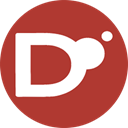Unleash Your Code: Discovering the Best FreeBASIC Alternatives
FreeBASIC is a cherished, open-source 32-bit BASIC compiler, admired for its QuickBASIC-like syntax and modern enhancements such as pointers, unsigned data types, and object orientation. While FreeBASIC offers a robust environment for many developers, specific project requirements, desired features, or a yearning for broader community support might lead you to explore other programming languages. This article dives into some of the most compelling FreeBASIC alternatives available today, helping you find the perfect fit for your next coding adventure.
Top FreeBASIC Alternatives
Whether you're looking for greater versatility, a different programming paradigm, or specialized capabilities, these alternatives offer excellent options for developers seeking to move beyond or complement their FreeBASIC experience.

Python
Python is an interpreted, interactive, and object-oriented programming language, making it a fantastic FreeBASIC alternative for those seeking clarity and versatility. It's free and open-source, with extensive platform support including Mac, Windows, Linux, S60, BSD, AROS, Haiku, AmigaOS, OpenSolaris, and MorphOS. Key features include its high-level nature, object-oriented capabilities, dynamic typing, garbage collection, and a modular system, offering a modern and powerful development experience.

C++
C++ is a powerful, statically typed, multi-paradigm, compiled, general-purpose language. Regarded as an intermediate-level language, C++ provides granular control often desired by FreeBASIC users but with expanded capabilities. It's free and open-source, available on Mac, Windows, Linux, and BSD. Its compiled nature, strong support for systems programming, and object-oriented features make it a robust FreeBASIC alternative for performance-critical applications.

Ruby
Ruby is a dynamic, reflective, object-oriented programming language known for its elegant syntax. It combines features inspired by Perl with Smalltalk-like characteristics, offering a highly productive development environment. Ruby is free and open-source, supported on Mac, Windows, Linux, BSD, and Haiku. Its dynamic typing, powerful package manager, text processing capabilities, and strong object-oriented design make it an excellent choice for a more expressive programming style compared to FreeBASIC.

C#
C# (C-sharp) is a multi-paradigm programming language developed by Microsoft, encompassing strong typing, imperative, declarative, functional, generic, and object-oriented (class-based) styles. It is free and open-source, available on Mac, Windows, Linux, and BSD. Its compiled nature and comprehensive object-oriented features make C# a powerful and versatile FreeBASIC alternative, especially for Windows application development and cross-platform solutions with frameworks like .NET Core.

Lua
Lua is a powerful, fast, lightweight, and embeddable scripting language. It combines simple procedural syntax with powerful data description constructs, making it ideal for extending applications. Lua is free and open-source, with broad platform support including Mac, Windows, Linux, Android, iPhone, Android Tablet, BSD, iPad, Android Wear, Haiku, AmigaOS, Playstation, and MorphOS. Its primary features as a scripting and configuration language make it a great FreeBASIC alternative for game development, embedded systems, and scripting tasks.

Perl
Perl is a high-level, general-purpose, interpreted, and dynamic programming language with a long history of development. It borrows features from various other languages, offering a flexible and powerful toolkit, particularly for text processing and system administration. Perl is free and open-source, available on Mac, Windows, Linux, BSD, and Haiku. Its strong shell integration makes it a pragmatic FreeBASIC alternative for scripting and data manipulation tasks.

LÖVE
LÖVE is an exceptional framework for making 2D games in Lua. If you're using FreeBASIC for game development, LÖVE offers a compelling, specialized alternative. It's free and open-source, working seamlessly on Windows, Mac OS X, Linux, Android, iOS, BSD, and FreeBSD. Its focus on 2D game development and support for collaborative workspaces make it a top choice for aspiring game developers.

Dart
Dart, a web programming language developed by Google, is designed for building client-side applications. While FreeBASIC is a compiler, Dart focuses on modern web and mobile development, offering a different but powerful paradigm. It's free and open-source, available on Mac, Windows, Linux, and Web. If your interest lies in cross-platform UI development (e.g., with Flutter), Dart presents a highly relevant FreeBASIC alternative.

D (Programming Language)
D is a programming language that features C-like syntax and static typing, blending efficiency, control, and modeling power with safety and programmer productivity. It's a pragmatic choice for those seeking a balance between high-level features and low-level control, similar to some aspects of FreeBASIC but with a more modern design. D is free and open-source, available on Mac, Windows, Linux, and BSD. Its features include contract programming, functional and object-oriented paradigms, and high-level constructs, making it a compelling FreeBASIC alternative for systems and application development.

Nim (programming language)
Nim is a statically typed, imperative programming language with a powerful macro system, aiming to provide ultimate programmer power without compromising runtime performance. For FreeBASIC users interested in a compiled language with modern features, Nim is an excellent consideration. It's free and open-source, supported on Mac, Windows, Linux, and BSD. Its compiler, cross-platform capabilities, imperative and object-oriented styles, and Lisp-like features make it a versatile and powerful FreeBASIC alternative for a wide range of applications.
Exploring alternatives to FreeBASIC opens up a world of programming possibilities. Each language offers unique strengths, catering to different project needs and development preferences. We encourage you to delve deeper into these options, experiment with their syntax and features, and ultimately find the best fit that empowers your coding journey.